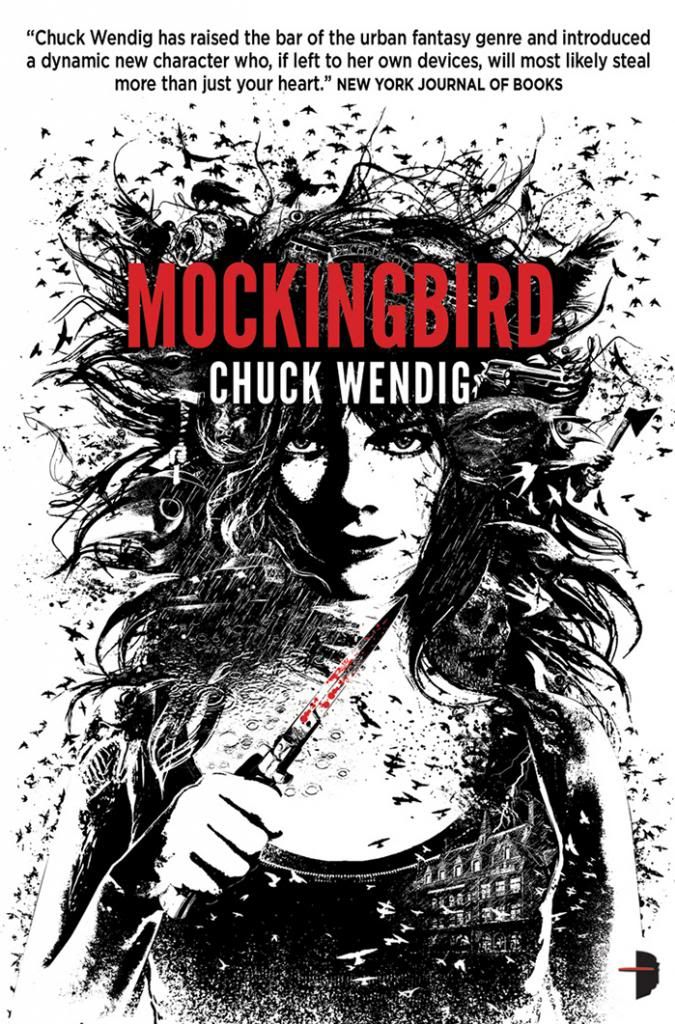When last we left Miriam Black, her unique ability to see the way people die had driven her not to take a life, but to save one. She defied fate, and pulled a fast one on the Reaper. Visions have taunted her to say that she’s part of something much bigger than just her freaky touch-based powers, and as Mockingbird opens, we find out that Miriam feels much the same way about destiny that she does about fate – it can go fuck itself.

Miriam tries. She tries pretty hard to settle into something resembling a normal life with Louis, the burly trucker she met during her last adventure. But normalcy and Miriam get along together about as well as a Tea Partier and an NPR host in a Hessian sack, and before long Miriam’s hit the road again. Louis chases her down, mostly because he’s devoted to her, and convinces her to talk to a teacher he knows who is willing to pay Miriam in order to confirm a suspicion. Reluctantly, Miriam agrees, and is drawn into a murder plot involving some of the girls at the school, knowing that the only way to cheat death is to offer it a life.
There’s something poetic about Miriam Black between the swearing and the cigarette butts. Despite her human form and function, she operates more like a force of nature, forever altering the lives of those she comes into contact with. Yet Chuck writes her with such a raw and real voice that we can’t help but relate to her, even if a good deal of her antics seem deplorable or reprehensible to us. Her world view may be skewed several degrees to the side of what most folks consider “normal”, and she may lie just as often as she deals in blunt, raw honesty, but at her core, she wants to avoid the suffering of others and never seeks to be the cause of it, if she can help it.
This is why the school environment and mystery plot are perfect for her. She’s put in a position where she is compelled to act, not out of monetary motivation but due to a sense of justice, of wanting to do right by girls who haven’t had their chances yet. It’s an opportunity for Miriam to both show her true colors and demonstrate that as much as she might rail against her destiny, she does herself no favors by denying her nature and avoiding what her gift can do for others. You can’t really call her a ‘heroine’ but Mockingbird brings her damn close.
I will admit to a touch of cognitive dissonance between this and Blackbirds, only because this work is much more focused on an overarching plot and objective than the previous one. This doesn’t make either work superior to the other one; it simply makes them different. Blackbirds was a tight, focused, and unflinching examination of Miriam Black as a character. Mockingbird takes this character and puts her on the rails of a more straightforward narrative. This is worth mentioning for lovers of the first book, but it’s most certainly not a problem: if you like Miriam Black, Mockingbird will not disappoint. It’s just worth it to be aware of the differences.
Chuck Wendig remains on top of his game, especially when it comes to his leads. Some of the supporting cast may feel a bit arch, ciphers for various aspects of Miriam and her life and past, but I think that’s inevitable when your protagonist is such a powerhouse. Fans of both mystery and Miriam Black will find plenty to love about Mockingbird. I know I did.



Leave a Reply